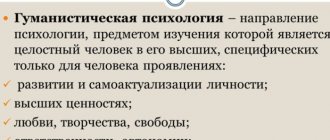Agnosticism is a very original philosophical concept that allows you to explain anything without explaining, in fact, anything. According to this concept, the surrounding reality cannot be fully cognized in principle, because the human factor - the subjective perception of the researcher - will always stand on the way to objectivity.
Subjectivity is a given, predetermined by the physical capabilities of the researcher and the means of conducting research available to him, which also cannot be perfect, because they are also made by man.
From these positions, no concept concerning the structure of the external world can be completely reliable, and none of them can be tested enough to establish the final truth. At the same time, not a single concept of the external world order can be refuted, because it is impossible to establish the truth, which means that any statement can potentially be true.
This conceptual approach in the theory of knowledge has existed for a long time, but the term “agnosticism” itself was proposed only in 1869 by the scientist Thomas Henry Huxley. There are philosophical, religious and scientific agnosticism. Let's consider each of the directions.
Philosophical direction
Agnosticism in philosophy is a movement that emerged at the end of the 19th century. This concept was used within the framework of the activities of positivists. However, the ancient Greeks, in particular Protagoras, held the opinion that it was impossible to establish the first principles of the universe.
Agnostics were constantly in search of scientific facts confirming certain “truths.” While claiming the impossibility of proving the existence of divine first causes, the philosophers were not atheists. They assumed the existence of a higher principle.
History of the term
The term “agnosticism” was first proposed for use in scientific circles by T. Huxley. The English zoologist, having received an offer to join the Metaphysical Society, for the first time seriously thought about his attitude towards God and religion. Not finding a term that would accurately describe his feelings, the scientist chose a new word that, in his opinion, described his worldview.
An agnostic, as Huxley saw it, is a person who does not accept religious dogma. He does not believe in the existence of any of the gods, since it has not been scientifically proven. But he also admits that humanity will be able to know the gods in the future, or prove that gods do not exist.
P. Kropotkin interprets the history of the term in his own way. He claims that it was first used by unbelieving writers who liked to gather in a small group at D. Knowles, publisher of the Nineteenth Century magazine. They chose to abandon the definition of “atheist”, preferring “agnostic” - one who denies gnosis.
The first mentions of agnosticism are found in the works of philosophers of the ancient period. The sophist Protagoras and the ancient Indian philosopher Sanjaya discussed the impossibility of verifying and proving the existence of gods. He also doubted the possibility of proving the existence of an afterlife.
Position and worldview
Agnosticism is a worldview that is a cross between faith and scientific objectivity. Very important for such a philosophy is the recognition of the possibility of the existence of the supernatural. Only the possibility of objective proof of his presence on earth is in doubt.
Agnosticism in philosophy is not a paradigm or a school. This is an intellectual position. A person who recognizes himself as an agnostic dissects the idea of faith using logic. He considers the evidence for the existence of God insufficient for a clear understanding. At the same time, philosophers of this direction admit the possibility of the presence of higher forces in nature.
Agnosticism is total skepticism. The critical position of the apologists of this doctrine is associated with a scientific view of the world. Representatives of every philosophical school that positions the impossibility of absolute knowledge of truth can be considered agnostics. Otherwise, the teachings can be completely different. The author of the term is the English biologist Thomas Huxley.
Cause and investigation
Agnosticism is a tendency that has a number of interesting consequences. A critical attitude towards one's own intellectual efforts leads to the fact that a person generally ceases to categorically assert anything. The absence of absolute truth leads to many different partial “truths.” This is perceived as the norm and serves as the basis for the now popular postmodernist doctrine.
The extreme degree of agnosticism is associated with the activities of the ancient Greek sophist philosophers. Representatives of this school, as history shows, could equally convincingly prove and refute any statement. Truth as such did not interest them; everything came down to skillful juggling with words and meanings.
What did Kant think about this?
Kant's agnosticism is associated with reflections on ideas acquired through experience, and so-called a priori knowledge. According to the philosopher, some of the intellectual baggage acquired by mankind cannot be verified experimentally. Therefore, we will never be firmly convinced of the truth of our achievements.
Arguing about the possibility of scientific knowledge of the world, Kant came to the conclusion about the duality of objects. Some properties of things, such as mass or color, can be determined using the human senses. Other characteristics, such as molecular structure, cannot be detected without special instruments. Potentially, there are always some features and characteristics that cannot be fully known.
Differences between agnosticism and skepticism
The ideas of agnosticism were first expressed by ancient skeptics, so we can assume that it comes from skepticism. And yet the difference between them is quite significant, so it is impossible to identify them or consider one part of the other.
Skepticism comes from the fact that it is impossible to reliably understand what knowledge corresponds to objective reality and what does not. Agnosticism allows such an understanding, but at the same time considers the very ability of the human mind to understand the metaphysical foundations of reality to be limited. Thus, agnosticism limits the potential of cognitive processes, while skepticism essentially questions their value.
Huxley emphasized that as science develops, the boundaries of knowledge expand, but some questions always remain outside these boundaries and, apparently, many will always remain there. In particular, from Huxley's point of view, it is impossible to reliably confirm or disprove the existence of God and other supernatural entities.
In this regard, the difference between agnosticism and skepticism is that the first implies a clear understanding of where the boundaries of reliable knowledge lie, while the second generally denies the possibility of distinguishing reliable knowledge from unreliable knowledge.
Expanding the scientific horizon
Scientific discoveries confirm this. Having studied molecules, and then atoms, scientists faced the problem of subatomic particles and quarks. And the study of star systems and galaxies naturally leads to questions related to dark matter and energy.
The constant expansion of scientific horizons does not deny the knowability of the world. Agnosticism as a condition for the continuous development and improvement of knowledge lies at the basis of all modern civilization. All phenomena and laws of nature are studied by man. Therefore, the characteristics of the knowing subject are the focus of attention of philosophers.
Today, agnosticism can be viewed from two perspectives. In an extremely broad sense, this trend is a prerequisite for modern scientific knowledge. In a narrower interpretation, this doctrine is associated with the totality of all philosophical trends based on the recognition of the multiplicity of equivalent ideas, opinions, assessments and positions.
Bibliography
- Abdildin Zh.M.: Dialectics of Kant. - M.: Book on Demand, 2012. - 160 p.
- Gryadovsky D.I. History of philosophy. Book 3. European Enlightenment. Immanuel Kant. - Edinstvo-Dana Publishing House, 2011 - 472 p.
- Deleuze J. Empiricism and subjectivity. - MOSCOW: PER SE, 2011. - 480 p.
- Cassirer E. The Life and Teachings of Kant. - M.: Center for Humanitarian Initiatives, 2013. - 448 p.
- Kant I. Critique of practical reason. - M.: Librocom, 2012. - 194 p.
- Kant I. Critique of Pure Reason. - M.: Eksmo, 2012. - 736 p.
- Kant I. Outlines of the metaphysics of morals. - M.: Mysl, 2001. - 1472 p.
- Minasyan L.A. Transcendental philosophy and post-non-classical science: rereading Kant // Scientific thought of the Caucasus. 2005. No. 4. P.21-30.
- Narsky I.S. Kant. - M.: Book on Demand, 2012. - 208 p.
- Nikitina I.P. Aesthetics. - M.: Yurayt, 2013 - 680 p.
- Novgorodtsev N. Kant and Hegel in their teachings on law and state. - M.: Book on Demand, 2013 - 253 p.
- Polikarpova E.V. Kant and the foundations of intellectual and political liberalism // History of State and Law. 2012. No. 15. P.12-18.
- Samylov V. Formation of the principle of historicism in German classical philosophy (Kant and Hegel) // Social and humanitarian knowledge. 2012. No. 4. P.56-67.
- Semenov E.V. Transcendental semantics of I. Kant // Questions of Philosophy. 2011. No. 11. P.152-162.
- Serdechna V.V. Doctrines about knowledge in the English tradition // Context and reflection: philosophy about the world and man. 2012. No. 2-3. P.76-94.
- Chekushkina E.N. Epistemology of morality by I. Kant // In the world of scientific discoveries. 2013. No. 1-1. P.237-247.
- Shashkevich P.D. Empiricism and rationalism in the philosophy of modern times. - M.: Book on Demand, 2012. - 304 p.
Questions and answers
The problems with agnosticism stem from the underlying doubt and mistrust. A philosophy that claims to be materialistic must provide reasoned and convincing answers to pressing life questions. Agnostics cannot give them. An apologist for this teaching does not doubt everything, as a skeptic does. He doesn't say "I don't know." An agnostic is confident that an ambiguous question can be answered either “yes” or “no.” That is, polar opposite statements are possible.
Agnostics believe that the product of human consciousness, be it a scientific discovery or a philosophical treatise, is not a true reflection of reality. This is just her mirror, a symbolic replacement.
Similar works
- Copr in philosophy: answers to questions
- Philosophy testing with answers
- Lan-Testing on philosophy: questions and answers
- Answers to the final test in philosophy
- Lan testing on philosophy: Question/Answer
- Copr for self-control in philosophy
- Answers to LAN testing in Philosophy
- Lan testing in philosophy: questions and answers
- Questions and answers for philosophy training
- Answers to tests in philosophy
- Philosophy tests with correct answers
- Answers to the test on the history of philosophy (part 1)
- Answers to LAN-Testing on philosophy
- Test on topics in philosophy with answers
- LAN-Testing on philosophy with answers
- Philosophy alphabet tests with answers
- Lan-Testing on philosophy: question / answer
- Philosophy tests for students with answers
Famous agnostics: who they were
Representatives of agnosticism are the previously mentioned Protagoras and Immanuel Kant, as well as the largest Scottish philosopher of the 18th century, David Hume. He was a lawyer, diplomat, businessman and writer. Hume published a Treatise of Human Nature, published in three books. Among his contemporaries he was known as a politician, diplomat and historian. David Hume is the author of the multi-volume History of England, which has found its readers in all countries of the European continent. As a diplomat, he worked at the British embassy at the court of King Louis in France. It is known that Hume corresponded with Voltaire, a former active admirer of his works.
The epistemological agnosticism of this famous Scottish philosopher influenced the intellectuals of subsequent generations: Adam Smith, Auguste Comte, Charles Darwin, Bertrand Russell. David Hume argued that the basis of knowledge is experience and sensations. He did not deny the existence of so-called extra-experimental knowledge, the example of which he considered mathematics. Human perception is objective. But the activity of consciousness, according to the philosopher, is not such. The existence of the external world cannot be confirmed or refuted by anything.
The agnostic usually takes the position of a detached observer. At the same time, he can argue with both sides of the dispute. Agnosticism as a critical attitude and polemical position is an important part of the modern scientific approach to the study of the world. This is not a philosophical theory or a holistic concept. Agnosticism is, rather, a path to knowledge of truth that will never be completed to the end, because the Universe is limitless, like the microworld.
Immanuel Kant - founder of German classical philosophy
An interesting fact: the outstanding philosopher Immanuel Kant was born in the Russian city of Kaliningrad, which was then called Koenigsberg. This significant event took place on April 22, 1724. But on that day, no one could have predicted the future glory of the son of a simple artisan and housewife. The fourth child among eleven siblings, little Kant grew up in poor health but with a quick mind. When his parents noticed this, they sent young Immanuel to school at the age of 9. Almost immediately the boy showed a keen interest in history and Latin. Although the main subject - theology - did not seem so interesting to him. But what most surprised the thinker’s biographers was that in high school Kant did not show the slightest interest in philosophy. His studies were mediocre, but he always learned strict discipline. After graduating from the gymnasium in 1740, Kant entered the theological faculty of the University of Königsberg, which was founded in 1544 and had a long academic tradition. However, he soon realized that he had made a mistake, as he developed an unexpected interest in philosophy, mathematics, physics, anthropology, philology, medicine and many other sciences. Perhaps this was due to the spirit that reigned in this ancient center of science. The young scientist planned to defend his master's thesis in philosophy, but the death of his father prevented this. To support his younger brothers and sisters and himself, Kant got a job as a private tutor and worked there for 10 years. It was during this period that he conducted active scientific work, rethinking the scientific worldview of the era. Cassirer E. The Life and Teachings of Kant. - M.: Center for Humanitarian Initiatives, 2013. - 448 p. A number of outstanding scientists of the Enlightenment, such as Copernicus (1473-1533), Spinoza (1632-1677), Hobbes (1588-1679), Locke (1632-1704), Leibniz (1646-1716), Newton (1642-1727), shook the medieval scientific ideas that had long dominated in Europe. Gradual but important changes took place in society: emerging capitalism began to resist absolutism and feudalism. Production became more efficient and required the development of applied sciences. Applied sciences, especially mechanics, also influenced the development of abstract scientific disciplines. The discoveries of Copernicus, Leibniz, Newton, Kepler (1571-1630) and others created a real scientific revolution. Heliocentric theory replaced geocentrism, materialistic metaphysics replaced religious scholasticism, philosophy ceased to serve only theology, but began to develop as an independent discipline. At the same time, people's worldview was liberated: the values of reason and pragmatism came to the fore, and the romantic ideals of chivalry and monasticism were relegated to the background. People awakened to a thirst for knowledge about the study of society, a need to explain the world around them from a scientific and philosophical point of view, separated from theological concepts. It should be noted that these trends were not yet purely atheistic. The term "God" has been used in both philosophy and theology. But philosophy interpreted it as a completely new category, identifying it with the “higher mind” and “nature”. Thinkers of the Enlightenment era (late 17th-18th centuries) tried to see through the accumulation of dogmas and elements of the cult of the “true God” the nature of harmonious relationships in the triangle “God-Nature-Man”. At the same time, society was not yet ready to accept this “harmony”, which was too full of freedom of thought and equality. Religious conflicts gave way to wars for political power. There was an urgent need for the formation of a new rationalistic, but at the same time humanistic philosophy, with a new look at society, state and law, ethics, science, culture, religion, etc. Gryadovsky D.I. History of philosophy. Book 3.
Kant's pedagogical activity
During his teaching career from 1747 to 1755. Kant was actively engaged in self-education and observation of human characters and the peculiarities of social relations in Prussia at that time. Based on the cosmogonic teachings of Newton, I. Kant put forward a revolutionary theory of the emergence of the Solar system from a cosmic nebula, as well as a theory of the dynamic evolution of the Universe, which has not lost its relevance to this day. Kant understood the formation of stars and planets as a result of the friction of attracting and repulsive particles. By studying the structure of the Universe only from the point of view of mechanics, Kant largely managed to get ahead of the astronomical science of his time, which indicated the undoubted genius of the scientist. Of course, there were shortcomings in his theory, but they cannot be assessed strictly from the point of view of the undeveloped scientific ideas of the time. In 1755, Kant presented two dissertations to the University of Königsberg, one of which he defended and successfully passed the exam for admission to the Faculty of Philosophy. He later received the title of privatdocent - a freelance lecturer who could charge students money for his lectures. To earn money in such a position, considerable talent was required, because it was necessary to keep the students’ attention precisely on his lectures. And Kant successfully coped with this task. He then taught for 41 years, attracting continued interest and reputation among young people. Lectures on logic, metaphysics, mathematics, and natural sciences alternated with lectures on geography, mechanics and ethics. Later exotic disciplines such as fortification and pyrotechnics were added, which were freely subject to Kant's encyclopedic mind. Narsky I. S. Kant. - M.: Book on Demand, 2012. - 208 p. After the Seven Years' War, Kant was a Russian subject for some time, which again linked his fate with Russia. From 1770 he received an official position at the university department. Gradually he managed to earn a fortune, but teaching took a lot of energy, leaving Kant little time for philosophical activity. However, Kant used even these “crumbs” surprisingly effectively. The thinker clearly planned every day, allocating estimated hours for intellectual work and reflection. Kant was most interested in problems of metaphysics, morality, religion and anthropology. The pre-critical period of his work (1744 - 1770) was marked by increased interest in pre-philosophical issues. In particular, as we noted above, Kant created his own cosmogonic system, dealt with issues of classification of animals, problems of the origin of human races, and some natural phenomena. In the immediate philosophical, so-called critical period of his work, Immanuel Kant devoted himself to developing his epistemological and metaphysical teachings. His mind was occupied with questions of knowledge and existence, morality, aesthetics and law. In 1781, his famous work “Critique of Pure Reason” was published, then “Critique of Practical Reason” (1788) and “Critique of Judgment” (1790) and a number of other works appeared. In them, the thinker raised the most important issues of epistemology, ethics and aesthetics and gave the world his original view of these problems, which influenced the further development of philosophy. Such basic concepts of Kant’s philosophy as “thing in itself”, “Anschauung”, “apriori”, “transcendentalism”, “antinomy”, “expediency”, “value”, etc. appeared and became firmly established in the terminology of philosophy. Polikarpova E.V. . Kant and the foundations of intellectual and political liberalism // History of State and Law. 2012. No. 15.S. 12-18. Thus was born classical German philosophy - a child of the German Enlightenment, which gave the world two new ideas: the active nature of man and continuous development.
The basis of modern civilization
It is a critical attitude towards acquired knowledge that moves science forward. Let's imagine what would happen if every theory was taken on faith and considered unshakable. This will no longer be science. Careful experimental testing and periodic revision of the generally accepted paradigm underlie the development of civilization. Nobody calls this approach agnosticism, but it is a foundation deeply hidden at the very beginning of the formation of society.
Agnosticism is a kind of antidote to many things. For example, from boundless faith in scientific and technological progress. People tend to look for a panacea - salvation from all misfortunes. At the same time, the search is aimed at the outside world, and not at the person himself. Agnosticism warns against this.
Survival Tool
Only constant control and responsibility for their actions will allow people to slowly and carefully move along the path of improvement. Every power conflict that leads to death must be perceived as a mistake. And the steps that led to it must be carefully analyzed in order to prevent this from happening in the future.
In the 20th century, human integrity is disintegrating. The previously unified sense of reason, goodness and beauty has lost its meaning today. Rationalism, fashionable at the beginning of the last century, is often blamed for this. It was agnosticism that became a kind of inoculation against the total mechanism into which many areas of positivist philosophy have turned. The future lies in criticism and skepticism. But we should not forget that there are such unshakable concepts in the world as love, goodness and beauty.









